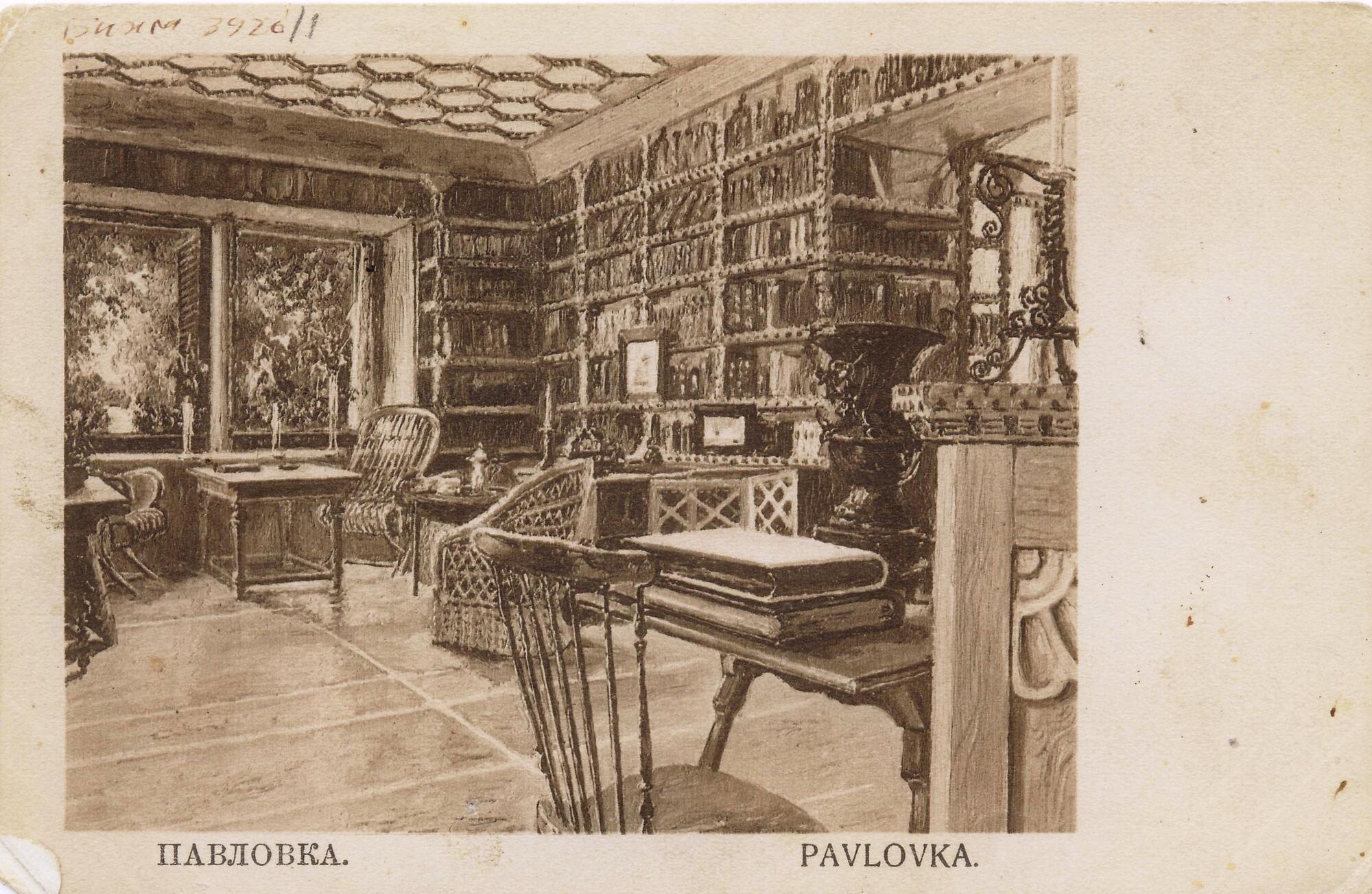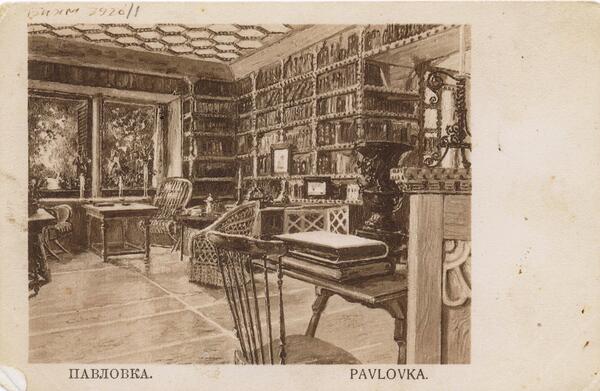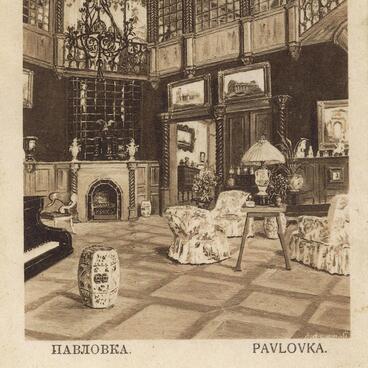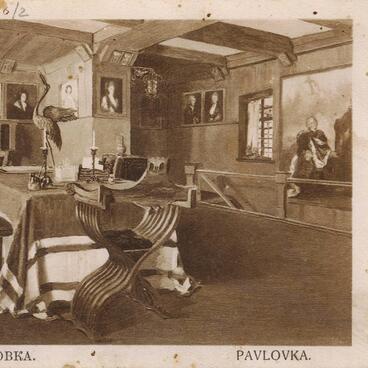This illustrated postcard was based on the painting, not a photo. It was printed in the early 20th century and is one of the Pavlovka postcards collection.
In the 1860s the Volkonsky family bought Pavlovka estate, which situated not far from Borisoglebsk. Serge Volkonsky (1860-1937) wrote about his hereditary property: ‘So, I preferred the expense item to the item of income. But I never felt like I expended money on myself when I expended them on Parlovka. I had a feeling it was my obligation, my mission to make what was called a “cultural heritage” during the times of revolution out of Pavlovka. There was also a church at the estate named after Peter and Paul. At the moment only the ruins and a beautiful park gone wild are left on the estate’s place.
Volkonsky’s library consisted of more than five thousand books, and most of them were collected by Serge Volkonsky. There were antique, philosophical, scientific works, and classics in the collection. In the memory of his grandfather Sergey Grigoryevich (1788-1865), the prince collected literature on the Decembrists. Many books were related to theatre, which was a Serge Volkonsky’s area of expertise.
The prince was a perfectionist, each book had history of its acquisition and ex libris (the prince’s coat of arms with the word Pavlovka under it). In 1917 with the beginning of the Soviet regime Pavlovka was nationalized. Volkonsky wrote about leaving his broad collection with pain.
Serge Volkonsky was a creative person, who was into theatre art from his early years. The important milestone at the Serge Volkonsky’s life journey was his appointment to the position of a director of Imperial Theatres in 1899. He enthusiastically drowned himself in work. Many plays, operas, ballets were staged at Alexandrinsky theatre under his direction. The prince was known for his progressive views in the spheres of theatre and art, he didn’t quite like the old school and was trying to bring his philosophy to his art collective. His influence expressed itself in the improvement of quality and technique of acting. As a result the repertoire of Alexandrinsky Theatre greatly broadened.
After resigning from his position of the director of Imperial Theatres Serge Volkonsky started to work abroad. During one of his trips to London he met his wife-to-be Mary Walker Fearn.
Serge Volkonsky passed away in USA in 1937.



